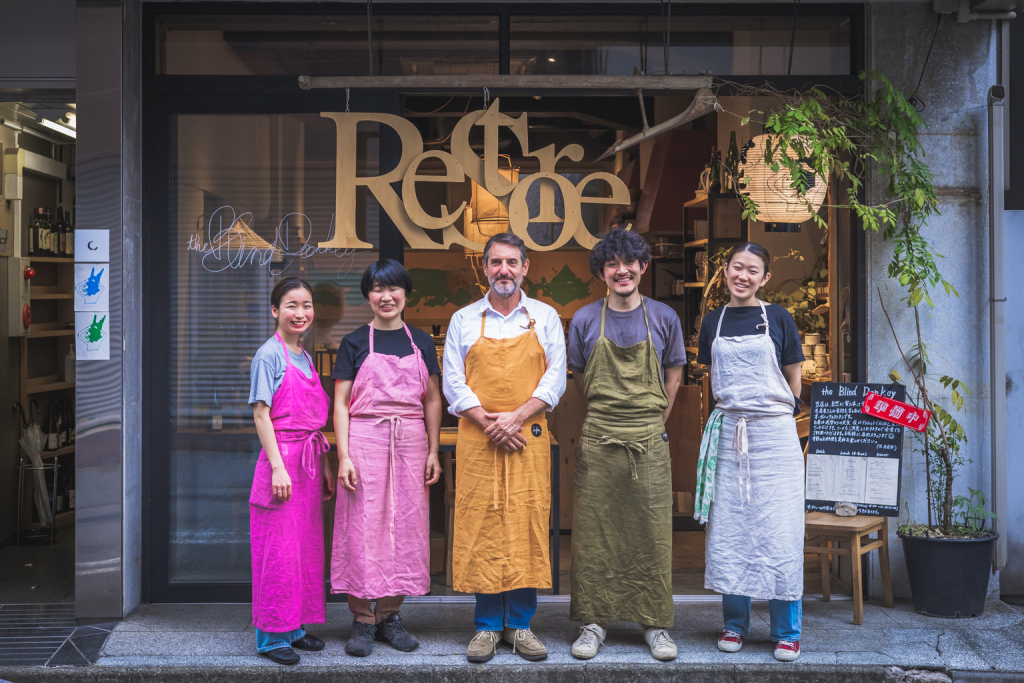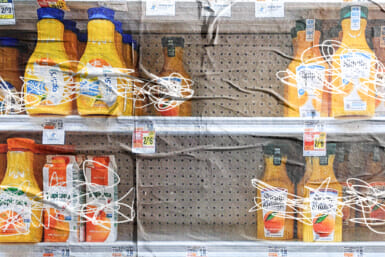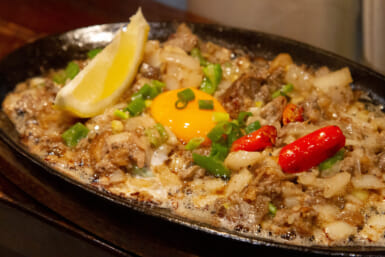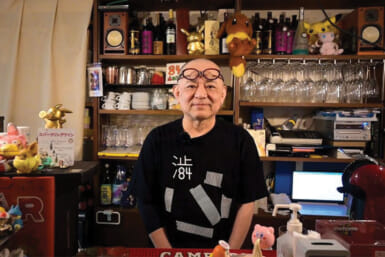Among the backstreet bars and old-school izakaya of Kanda in Tokyo, French-born chef Jerome Waag has created a culinary oasis in The Blind Donkey. He aims to rejoin Tokyo with what he calls “the living world,” connecting with alternative food producers across Japan, from the northern island of Hokkaido all the way to Kyushu in the south.
Yet despite the restaurant’s success, Waag does not have the traditional background you might expect of a restaurateur and chef. Growing up in Le Luberon in southern France, he was inspired by his mother’s cooking and was exposed to the beautiful ingredients in the region. However, he was initially tinkering with computer design when an unexpected opportunity came his way — a chance to work as a line cook at the world-renowned Chez Panisse in California. Its founder, Alice Waters, a friend of his mother’s, suddenly offered him a job during a visit to France. While Waag hadn’t been planning to become a cook, he felt there was something appealing about California, and so he took the plunge.
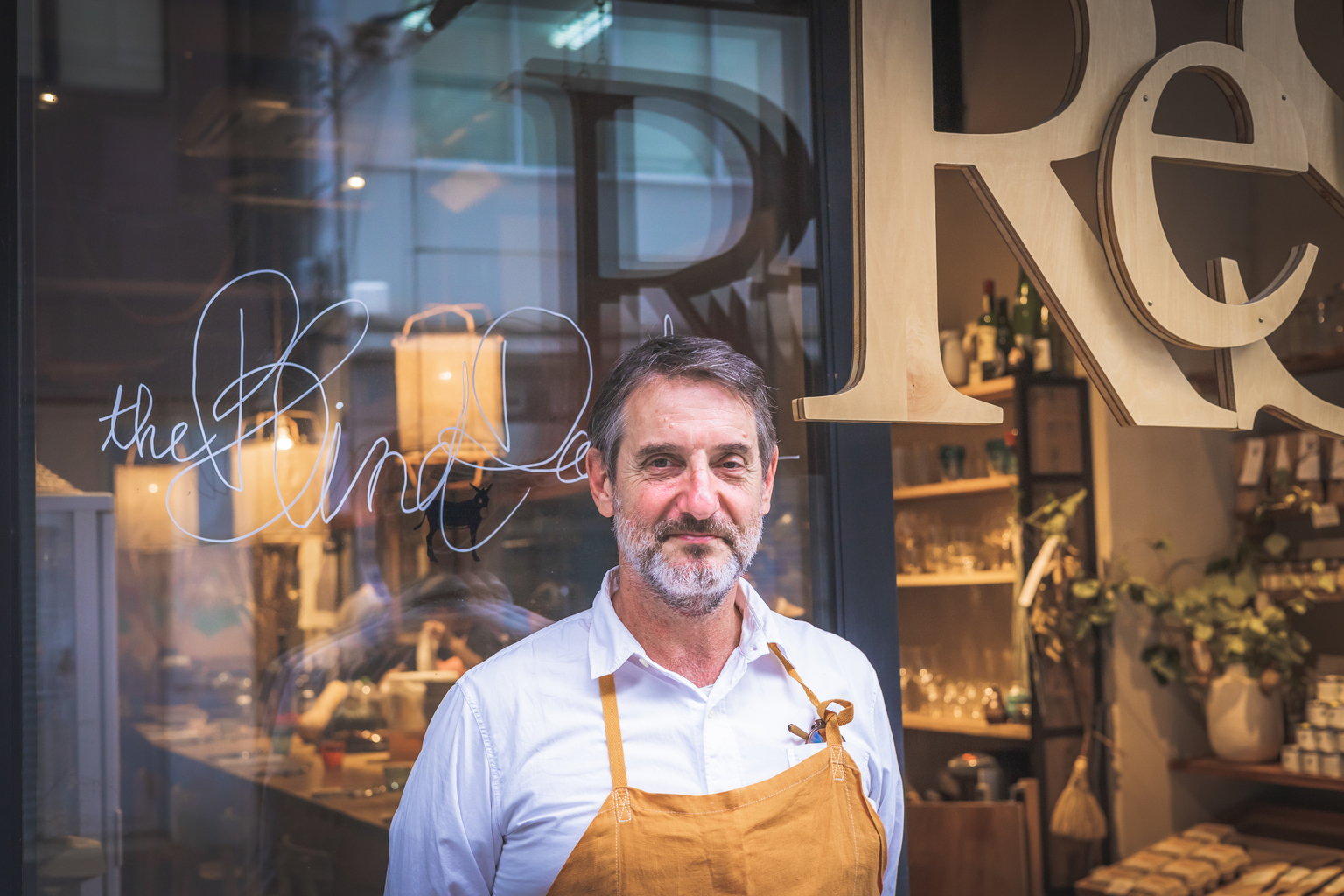
Merging Two Worlds
For the next 20 years, Waag climbed the ranks of Chez Panisse, eventually becoming head chef. All of this he achieved while simultaneously creating art in his studio, working on conceptual and abstract visualizations of thought patterns. “A few years in, I realized I also needed to make art,” Waag recounts. “I needed to spend time in a studio, so I asked the restaurant if I could work three days a week.”
However, over time, this wasn’t enough. Waag started to feel that his life in the kitchen and life in the studio were too separate, and he wanted to find a way to bring them together. This led him to start up an art collective called “Open Restaurant.” He began creating events that revolved around food culture to tell different stories about topics ranging from urban farming to water.
These were successful within the local community, but his event partner decided to seek new adventures in Japan. Waag had always had an interest in Japan from watching Japanese films throughout his teens, so it was an easy decision to go together. He began working back and forth between Japan and California, holding various events while still manning the helm of Chez Panisse. Eventually, he realized that it was time to open his own restaurant.
“For a taste of poetic adventure, I thought, why don’t I open a restaurant in Tokyo? It was crazy, but I always loved Tokyo,” says Waag. “I liked the old-style areas and the texture of the city. It got under my skin.”
That is how The Blind Donkey came to be, opening its doors in 2017.
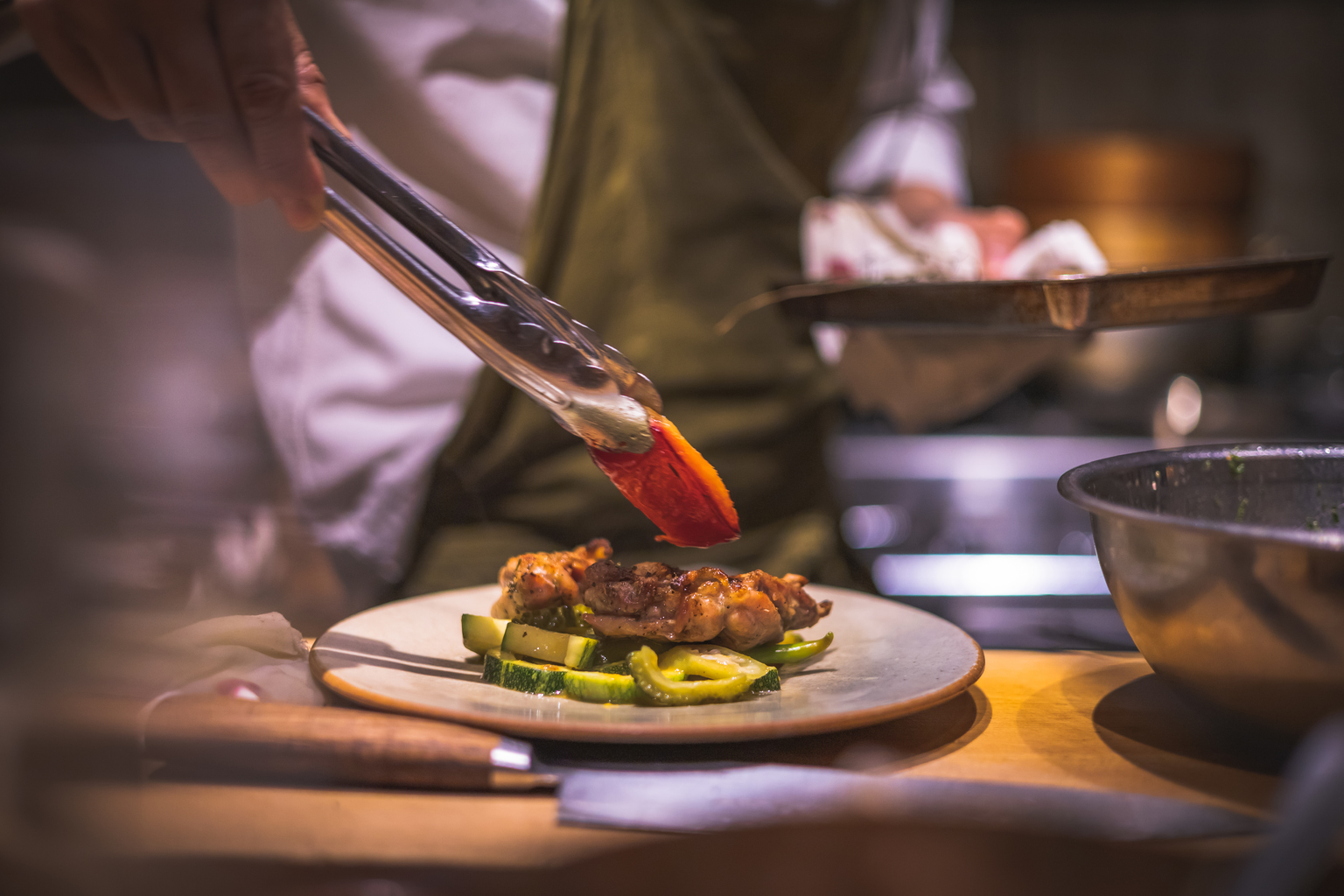
Reconnect to the Living World
Waag draws inspiration from Zen, having spent two years in a Zen monastery in California, where he read about the life of Ikkyu (1394-1481). Ikkyu was a Japanese Buddhist monk renowned for his unconventional outlook on Zen, but his beliefs attracted strong criticism at the time. One such harsh comment was that the dharma, the teachings of Buddha, would be passed onto a blind donkey after Ikkyu passed away — a reference to how clueless people thought he was. On hearing this, Ikkyu jokingly decided to refer to himself and his Kyoto hermitage as The Blind Donkey. This struck a chord with Waag, who felt it also represented his unorthodox upbringing and way of thinking.
The Blind Donkey aims to support alternative food producers in Japan. After reading Masanobu Fukuoka’s The One Straw Revolution, Waag became interested in what Fukuoka dubs “natural farming,” an approach where people work in collaboration with nature without using artificial chemicals and fertilizers.
“When I got to Tokyo some 10 years ago, the alternative food culture wasn’t apparent in Tokyo anymore. What I had read in the book — those people weren’t there,” says Waag.
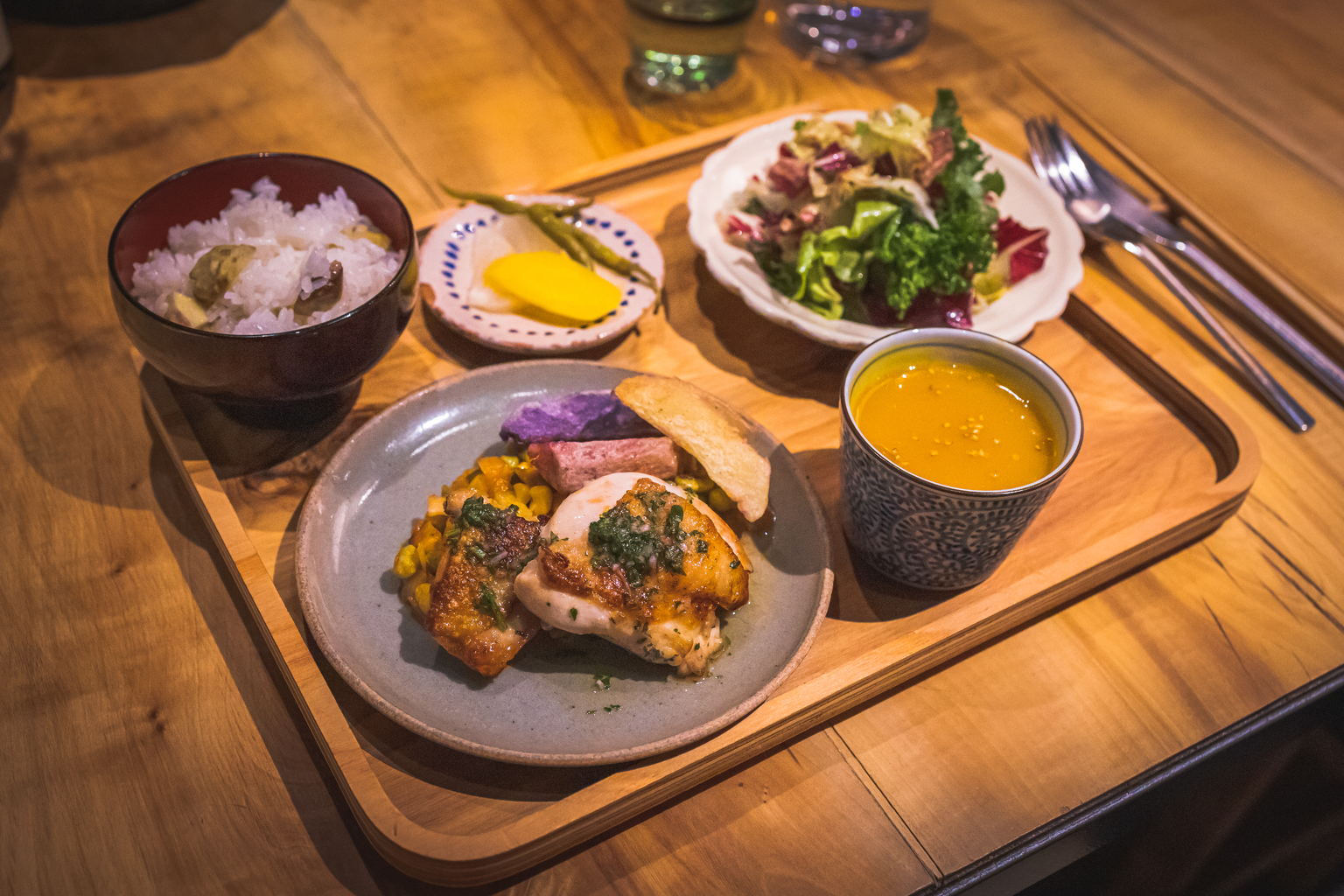
However, that inspired him to reconnect the megacity with what Waag likes to call “the living world.” Waag enlisted the help of Shin Harakawa, a friend he met during his early Japan adventures and who was to become his co-founder of The Blind Donkey.
The two traveled across the country for a year searching for producers to connect with. It was a new experience for them, and different ways of thinking combined with a language barrier meant the task proved quite difficult at first. Waag says the producers would promise one thing, but then something different would be delivered to the restaurant.
“It made us more aware and taught us the right way to run this type of restaurant — calling the farmers every week, seeing what is ripe and what is the best produce at the time. We don’t go around asking for produce; instead the farmers tell us what they can offer us,” he explains.
This deep-rooted commitment to alternative producers across Japan is the core of The Blind Donkey’s success. Customers entering the restaurant will be greeted by the sight of a wide countertop displaying these directly sourced ingredients. Behind this lies an open kitchen, where Waag and his staff can be seen at work. At the front of the restaurant, there is a small shop selling homemade products, as well as some of the items made by the farmers. One recent bestseller, for example, is a bolognese sauce made with deer meat from Antler Crafts, a group of deer hunters located in Oshika Peninsula in Japan’s northeastern Miyagi Prefecture.
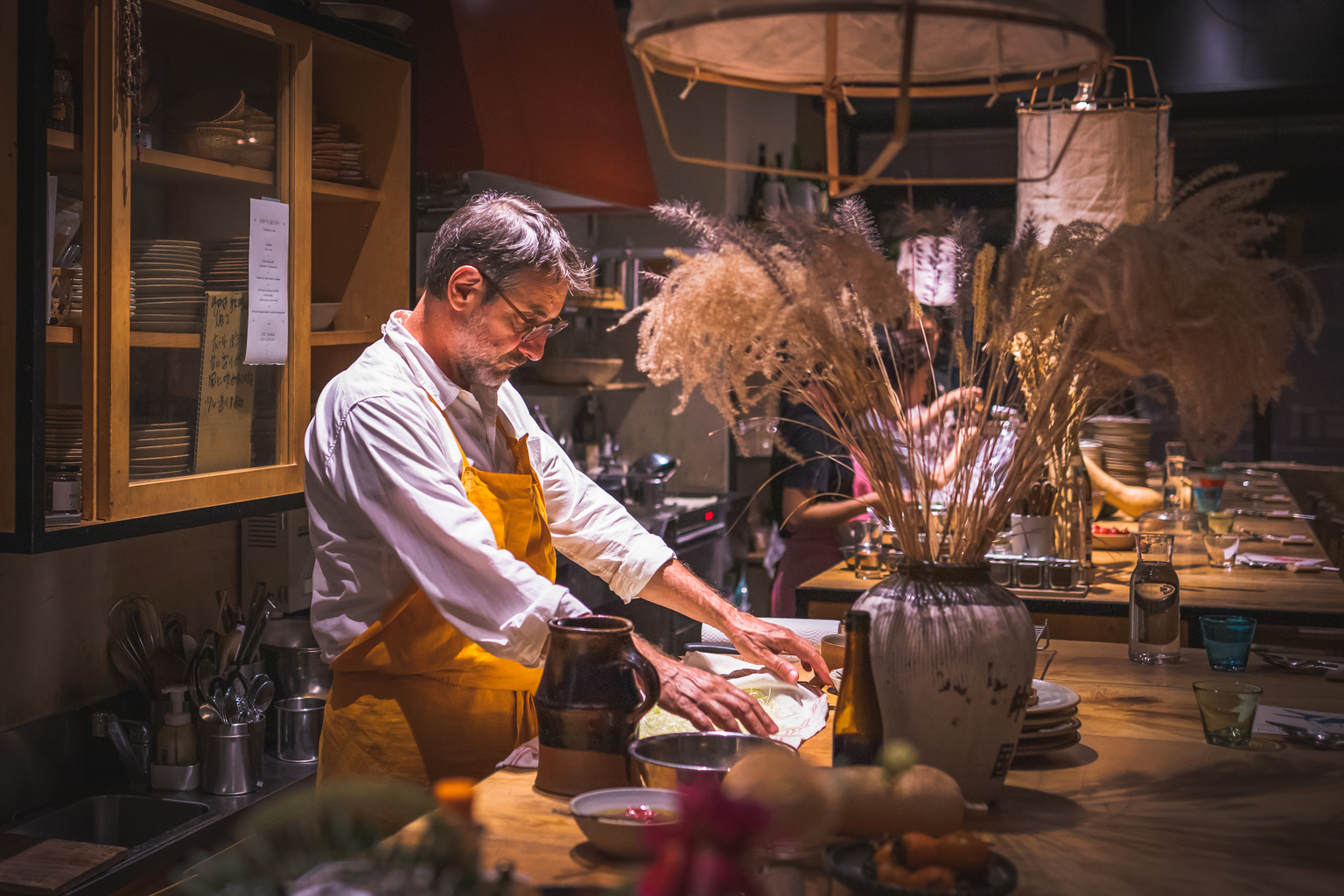
Simple is Beautiful
Waag wanted to create a comfortable place where he can breathe easily, or as he puts it, “where there is a bit of casualness and messiness to it.” This is what makes The Blind Donkey so inviting and relaxing.
“I want our customers to just have a good time. I want them to come to our restaurant and eat something delicious. It’s about the pleasure of eating food,“ Waag says.
If customers are interested in more detail about the produce, staff are happy to oblige, but it’s not something they overly promote. “We have hints in our menu, and we will explain to them if needed, but I don’t want to beat them over their head with the problems of the food economy, for example,” Waag says.
“The food at The Blind Donkey is simple. The technology is also simple. We use fire since it’s unpredictable — it’s never the same; you always have to pay attention. It’s a raw way of cooking.”
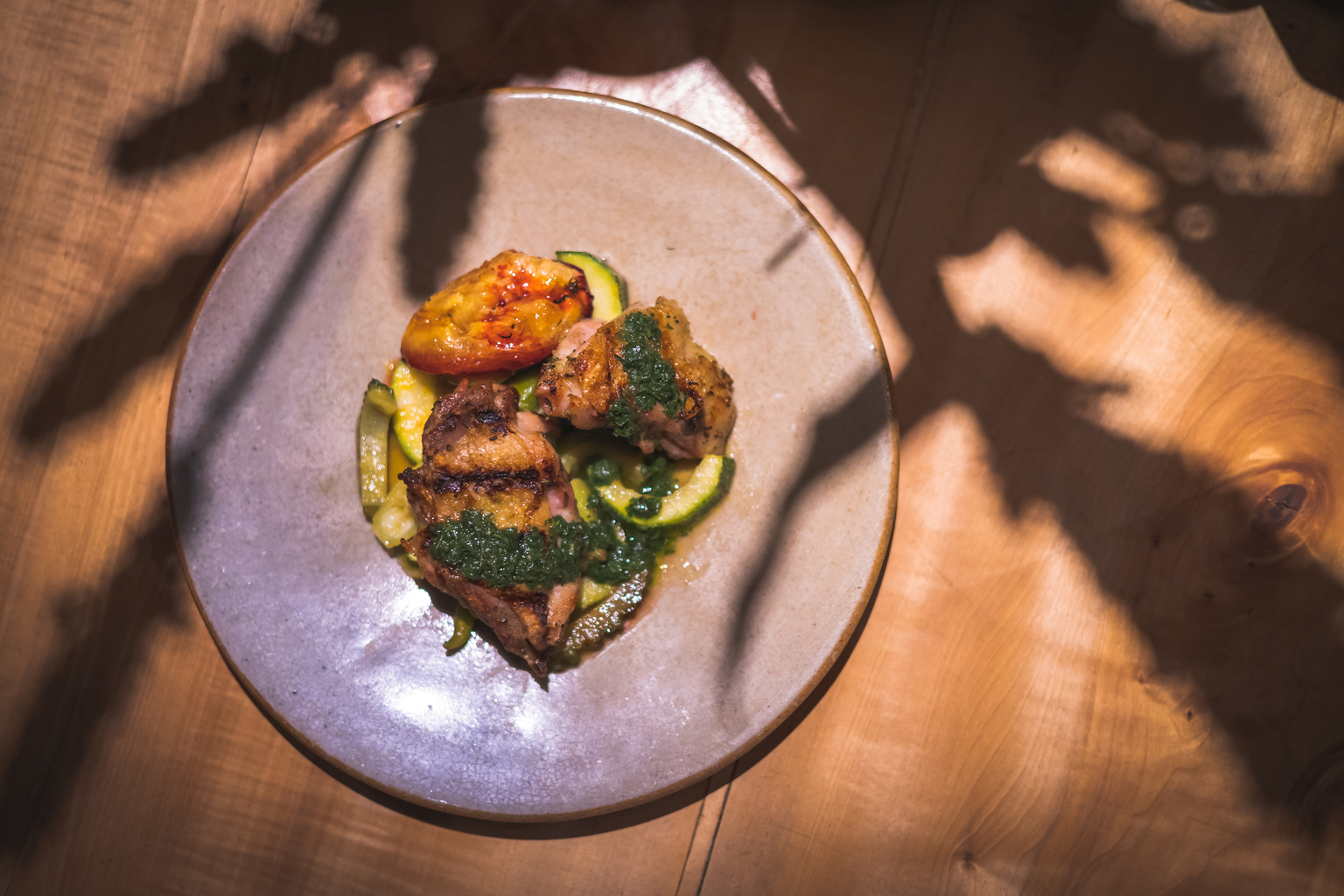
The restaurateur gives at least half the credit to producers for his food. A dish is always a collaboration between the chefs, the producers and the living world. As Waag explains, “We present the work of humans and nature.”
The restaurant is open for lunch three days a week, serving a Japanese-style teishoku (set meal). From Tuesday through Saturday evenings, customers can enjoy the à la carte menu or a course of four dishes, served with bread from Yoshida Pan, a renowned bakery in Kyoto. The dishes are light and let the natural flavors shine through. The ingredients are sourced from all over Japan. There are naturally sweet potatoes from Lake Toya on the northern island of Hokkaido and pork from Kagoshima in the south, which boasts a delicate layer of fat that is tender, juicy and packed full of umami. Waag and his team are in constant contact with the producers and change the menu frequently, making each visit to The Blind Donkey an exciting one.

Coming Full Circle
While Waag may not be spending as much time in the kitchen as of late, his presence, personality and passion can be felt throughout the restaurant. “Nowadays, The Blind Donkey is in a bit of a transitional phase. I’m in my 60s, so I’m not spending as much time there,” he says. “I also want to give a chance to the younger chefs to develop, to take chances and cook more.”
Waag draws inspiration from a quote by French artist, Robert Filliou: “Art is what makes life more interesting than art.” It is a philosophy that has helped him to improve his quality of life and achieve a better work-life balance; he is able to fully express his two passions, food and art, while also helping to reintroduce the beautiful produce of Japan to a wider audience.
Paying homage to the French word ‘restaurateur,’ from which the word “restaurant” is derived, there is a sign hanging at the front of the restaurant which simply reads “Restore.” The Blind Donkey epitomizes just that. As Waag explains, “We want The Blind Donkey to restore and reconnect the urban Tokyo dweller with the living world through food.”
| Location | |
| More Info |
Website →
09025682806 |

